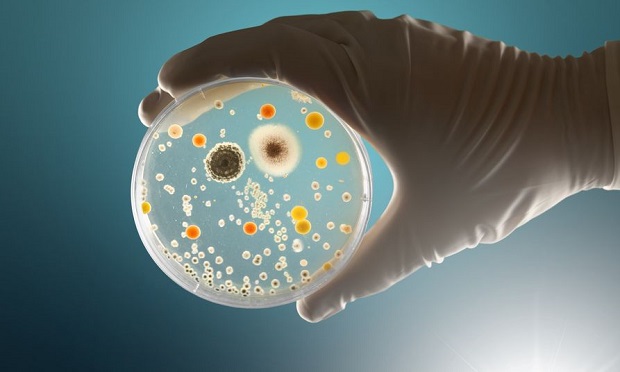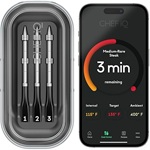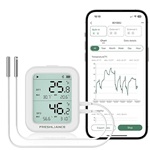
Leading Bacterial Causes of Food Poisoning
According to the National Institutes of Health, bacteria are the leading cause of the 48 million cases of food poisoning reported each year in the US. Of the many bacteria that cause food poisoning, most are caused by a handful. [1]
Jump Ahead
- Bacterial Food Poisoning List
- Salmonella
- Campylobacter
- Listeria
- E.coli
- Clostridium perfringens
- References
Bacterial Food Poisoning List
The following is a list of bacteria that cause food poisoning from the US Food & Drug Administration. [2]
- Aerobacter
- Aeromonas hydrophia and other spp.
- Bacillus cereus
- Campylobacter jejuni
- Citrobacter
- Clostridium botulinum
- Clostridium perfringens
- Enterobacter
- Escherichia coli-– enterotoxigenic (ETEC)
- Escherichia coli- enteropathogenic (EPEC)
- Escherichia coli- O157:H7 enterohemorrhagic (EHEC)
- Escherichia coli- enteroinvasive (EIEC)
- Klebsiella
- Listeria monocytogenes
- Plesiomonas shigelloides
- Proteus
- Providencia
- Salmonella spp.
- Serratia
- Shigella spp
- Staphylococcus aureus
- Streptococcus
- Vibrio cholerae 01
- Vibrios cholera non-01
- Vibrio vulnificus
- Yersinia enerocolitica/pseudoturberculosis
Though the list of bacterial causes of food poisoning is extensive, there are several that are more common.
Salmonella
Salmonella is carried in foods of animal origin such as raw meat and unpasteurized milk. It is also carried on lizards, reptiles, and turtles. Cooking meat thoroughly, purchasing only dairy products made with pasteurized milk, and washing hands after handling reptiles and raw meat products will kill the bacteria. [3]
Campylobacter
Campylobacter is carried in foods of animal origin, such as raw meat and unpasteurized milk, as well as contaminated water. Cooking meat thoroughly, purchasing only dairy products made with pasteurized milk, and washing hands prior to food preparation and after handling raw meat products will kill the bacteria. [4]
Listeria
Listeria is carried in soil, water, and raw foods. It can survive even after being refrigerated. Washing hands thoroughly prior to food preparation, avoiding raw foods, and washing fruits and vegetables help lower the risk of infection. [5]
E.coli (Escherichia coli )
There are many types of E. coli. Most are not harmful. In fact, some are even beneficial. The few that are harmful contaminate food through feces. They can be transferred through the slaughter or milking process, enter water sources, or even be passed by humans, which is why it is so important to wash hands prior to food preparation, purchase pasteurized dairy products, wash fruits and vegetables and cook food thoroughly. [6]
Clostridium perfringens
Clostridium perfringens is one of the most common causes of foodborne illness. These bacteria are responsible for more than one million reported cases. Proper food handling and keeping foods hot will kill the bacteria. [7]
References
- [1] National Library of Medicine – National Institutes of Health – “Foodborne Illness: MedlinePlus.“
- [2] U S Food and Drug Administration – “Bad Bug Book.“
- [3] Centers for Disease Control and Prevention – “Salmonella.”
- [4] Center for Disease Control and Prevention – “Campylobacter.“
- [5] National Library of Medicine – National Institutes of Health – “Listeria Infections: MedlinePlus.“
- [6] National Center for Biotechnology Information – “FAQ: E. Coli: Good, Bad, & Deadly.”
- [7] Center for Disease Control and Prevention – “Clostridium perfringens.“
Related Products
CHEF iQ Sense Smart Wireless Meat Thermometer with 3 Ultra-Thin Probes, Unlimited Range Bluetooth Meat Thermometer, Digital Food Thermometer for Remote Monitoring of BBQ Grill, Oven
Freshliance Temperature Humidity Data Logger Bluetooth Refrigerator Thermometer with 2pcs External Probe, Data Graph Analysis Filtering via APP and Multi-User Sharing, Rechargeable BlueTag TH30R-I

